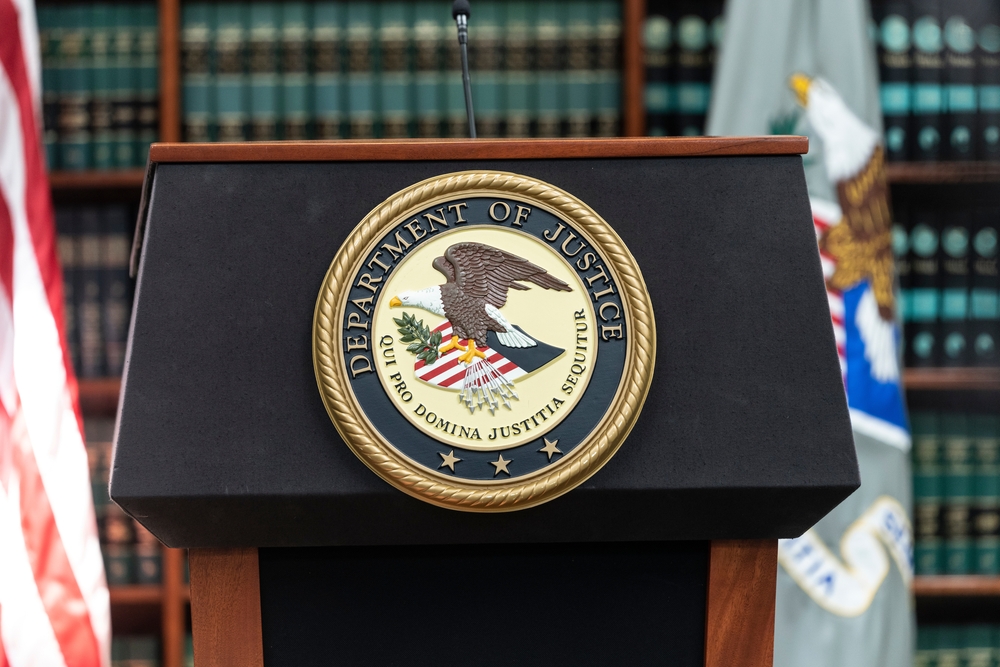The writer, an FBI agent for 31 years, retired as resident agent in charge of the Ann Arbor office in 2006. He has a law degree from the University of Nebraska College of Law. He is the author of “FBI Case Files Michigan: Tales of a G-Man.“
By Greg Stejskal
Between March 13-15 several people in the upper echelon of the Trump administration including the vice president, secretary of defense, secretary of state, directors of CIA and national intelligence and the national security advisor to the president, engaged in a group chat which involved a discussion of a planned attack on Houthi military targets in Yemen and ultimately a real-time description of the attack on March 15, the Ides of March, posted by Secretary of Defense Pete Hegseth. Near the end of Hegseth’s post, he wrote, “We are clean on OPSEC (operational security).” They clearly were not clean. The attack was successful, but perhaps Shakespeare’s warning in “Julius Ceasar” would have been appropriate for Hegseth, “Beware the Ides of March.”
The chat sessions were conducted on personal phones using a commercially available encryption app, Signal. The intelligence community is aware that Signal is relatively easy for foreign intelligence services to compromise and has warned people in the intelligence community not to use it for official business. Beyond the obvious breach of national security protocols, Mike Walsh, the national security advisor, who setup the group chat, inadvertently invited Jeffrey Goldberg, the Editor-in- Chief of The Atlantic magazine, into the group.
Initially Incredulous
Initially Goldberg was incredulous that this was an actual high-level national defense chat group. But after the attack took place and it was described in real-time by SOD Hegseth, Goldberg was convinced it was real. Goldberg realized his being on the chat was an egregious breach of security and disconnected himself from the chat.
Because of the nature of this breach of security, Goldberg wrote an article about it. The story broke on March 23rd, but exercising far more discretion than the chat participants, Goldberg did not report any of the specifics of the chat conversation.
Rather than just take responsibility for his spectacular blunder, Walsh, who organized the chat group and included Goldberg, downplayed the nature of the chat and attacked Goldberg with epithets like “loser” and “bottom scum.” Hegseth was more loquacious describing Goldberg as a “deceitful and highly discredited so-called journalist who has made a profession of peddling hoaxes.” Director of National Intelligence Tulsi Gabbard during a congressional hearing said there had been no specific information in the chat about the impending military strike and therefore the chat was not classified.
Responding to a question, President Trump said that he was told no classified information was discussed in the chat, and that he didn’t think any security breach could have been damaging as the military strike against the Houthis had been very successful. Trump also made some disparaging remarks about Goldberg and The Atlantic and summed up Goldberg’s reporting as a “witch hunt.”
Goldberg Responds
After these attacks on Goldberg’s credibility, Goldberg published screenshots of the chat discussion including Hegseth’s detailed descriptions of the attack timeline, descriptions of weapons systems used damage assessment, etc. Presumably, some of Hegseth’s post compromised intelligence sources and methods. It’s hard to imagine if this information coming before an imminent attack isn’t classified, what would be.
Thus, was born another “gate” scandal, Signalgate.
With no one taking full responsibility nor offering an explanation of how this huge breach of security could occur, there have been bipartisan calls for an investigation.
Trump learned from his first term.
Trump has now put in place a loyal and fully compliant attorney general and a sycophant as director of the FBI. After being appointed, there was some hope that Attorney General Pam Bondi would retain the independence of the DOJ. But despite testifying there would be no retribution within the DOJ on her watch, she has allowed the dismissal or demotion of career assistant US attorneys without cause other than they prosecuted cases arising from the J6 insurrection. The DOJ has also helped facilitate Trump’s executive orders targeting large law firms that have challenged Trump’s “agenda” which appears to be retaliatory extortion.
Bondi-Trump Relationship
The Trump/Bondi relationship began when Bondi was the Florida AG. In 2005, Trump had established Trump University, and he was 93% owner and its chief promoter. Trump U. was not a university, nor did it have any accreditation. Trump U. ceased operating in 2010 amid a flurry of allegations of fraud. Several class action suits were filed. The New York AG joined in a suit on behalf of the NY plaintiffs. In Florida AG Bondi’s office received about two dozen complaints against Trump U. from Florida residents, but the Florida AG’s office took no action. It’s not clear whether AG Bondi was involved in the decision to not pursue any action against Trump, but soon after the decision was made, Trump’s family foundation sent a $25,000 check to a political action committee (PAC) associated with Bondi who was running for a 2nd term as Florida AG. Ultimately Trump settled the class action suits for $25 million, but not before castigating the Federal District Court Judge for being bias because he was of Mexican heritage.
Bondi was also part of Trump’s defense team during his 2nd impeachment trial resulting from events leading up to and culminating in the January 6 insurrection. Bondi is on record denying the 2020 election results.
Unlike in Trump’s 1st term, there would be no recusal of the AG or the appointing of a special counsel. Nor would Trump have to fire the FBI director because he refused to close a case – there would be no case.
So, when AG Bondi was asked whether there would be an investigation of the Signal chat, Bondi’s said there was no classified information involved so no investigation was necessary. She then went to the whataboutism deflection talking about Hillary Clinton’s emails and that former President Joe Biden had classified documents in his garage. What she didn’t mention was the FBI did investigate Clinton’s handling of classified and sensitive emails, and that Biden had discovered and voluntarily turned over the classified documents he had. Biden also consented to having the FBI search both his residences. This in contrast to the DOJ/FBI having to obtain a search warrant and to conduct a search to recover numerous classified documents from Trump’s Mar-a-Lago residence resulting in indictment of Trump.
A Red Herring
Trump and Bondi’s apparent fixation on whether the information discussed in the Signal chat group was classified is a bit of a red herring.
The statute that is generally relied on in conducting investigations regarding the mishandling of sensitive national security information is the Espionage Act (18 USC §793) which was enacted before there was a classification system. Consequently, the statute does not mention whether information is classified. It only addresses “information relating to national defense.” The part of the statute that would be relevant to the Signal chat disclosures would be:
“Whoever being entrusted with or having lawful possession or control of any document, writing … note or information relating to national defense, (1) through gross negligence permits the same to be removed from it’s proper place of custody or delivered to anyone in violation of his trust, or to be lost, stolen, abstracted, or destroyed, or (2) having knowledge that the same has been illegally removed from its proper place of custody or delivered to anyone in violation of its trust ….”
Note this section of the statute, unlike most criminal statutes, does not require criminal intent. It only requires “gross negligence.”
An investigation by the DOJ/FBI should be conducted not necessarily to prosecute a crime, but among other things, to determine what damage was done to our national security, who may have gained unauthorized access to this information beyond the editor-in-chief of The Atlantic magazine and to engender a more professional and serious handling of sensitive national defense information.
It serves no useful purpose to ignore ramifications of these disclosures of sensitive national defense information and just attack the person who disclosed the breach. The free press did its job. Those involved in the breach need to take responsibility for their mistakes and to unequivocally declare they will protect national defense information entrusted to them.







